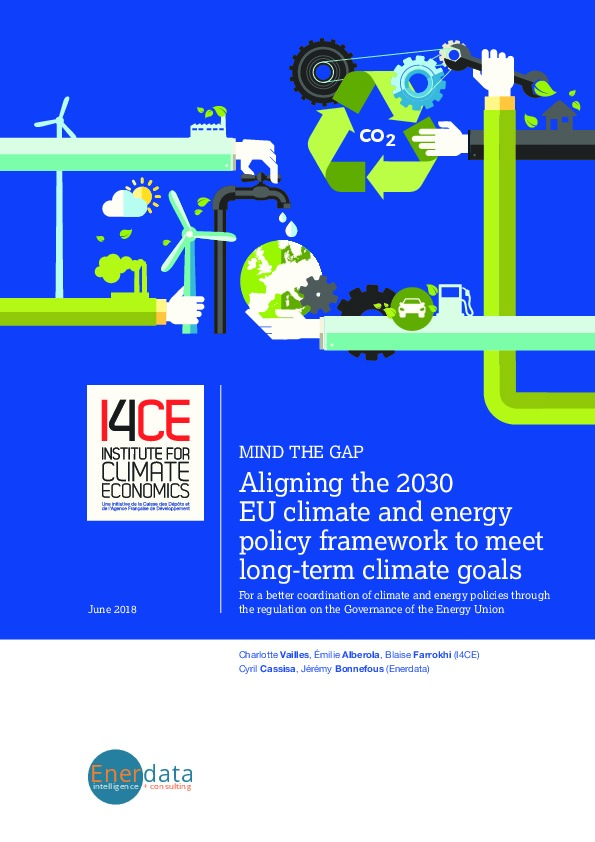Full report – « Mind the gap »: Aligning the 2030 EU climate and energy policy framework to meet long-term climate goals
For a better coordination of climate and energy policies through the regulation on the Governance of the Energy Union.
Following a policy brief in April 2018, I4CE and Enerdata publish the full study. The report analyzes interactions between EU energy and climate policies and proposes policy options to mitigate counteractive interactions and meet an increased EU long-term climate ambition in line with the Paris Agreement.
I4CE and Enerdata demonstrate from their analyses of the EU 2030 energy and climate framework that:
1. On the one side, counterproductive interactions within the EU 2030 climate and energy framework undermine its effectiveness and jeopardize the achievement of climate targets. Legislative texts currently under negotiation lack the necessary provisions to mitigate these effects
2. On the other, the 2030 climate and energy framework falls short of the EU long-term ambition, which is itself insufficient to respect its commitment under the Paris Agreement.
A policy window is currently open in Europe with the revision of its 2030 climate and energy framework and its long-term climate strategy. Negotiations are ongoing between EU institutions on several legislative texts, including the renewable energy directive, the energy efficiency directive and a regulation on the Governance of the Energy Union, a text of particular importance, as it will aim at guaranteeing the achievement of EU climate and energy targets while ensuring policy coherency.
Furthermore, EU leaders asked the Commission to propose a revision of the EU long-term climate strategy by the first quarter of 2019 in accordance with the Paris Agreement.
The most should be made of this opportunity to implement a coherent and ambitious policy mix in the EU to fulfill its climate commitment under the Paris Agreement.
I4CE and Enerdata define policy options to make the EU climate and energy policy framework consistent the Paris Agreement before 2030, by:
1. Setting the EU long-term climate targets right, taking into account the goals of the Paris Agreement;
2. Defining a climate and energy policy framework aligned with long-term targets at the EU and national levels;
3. Ensuring the coherency of the policy framework and mitigating counteractive interactions.

